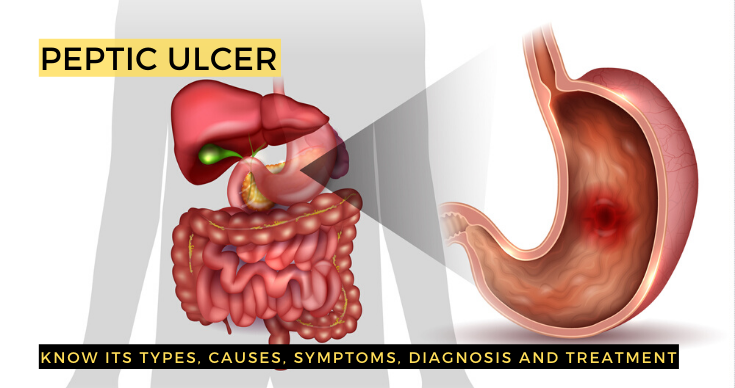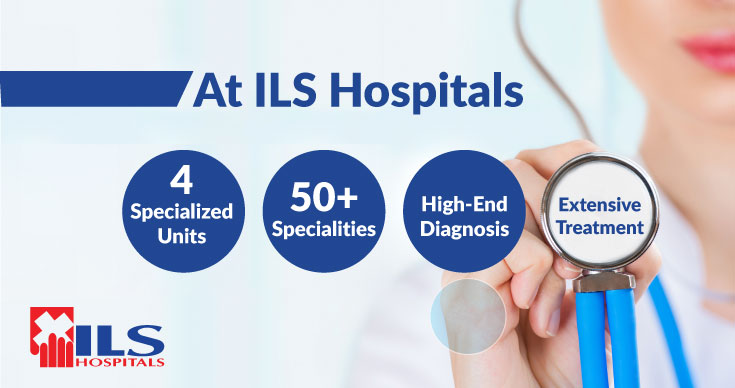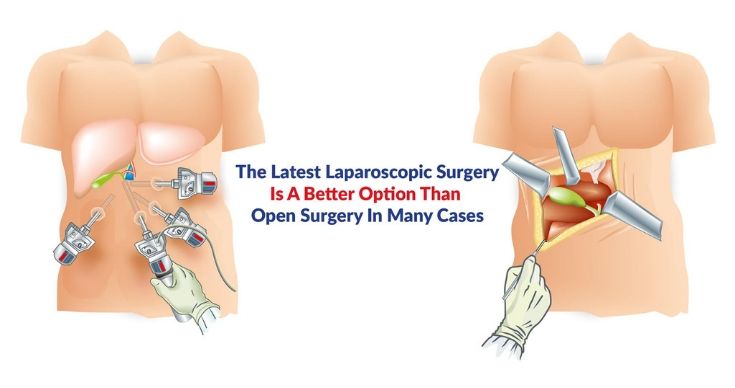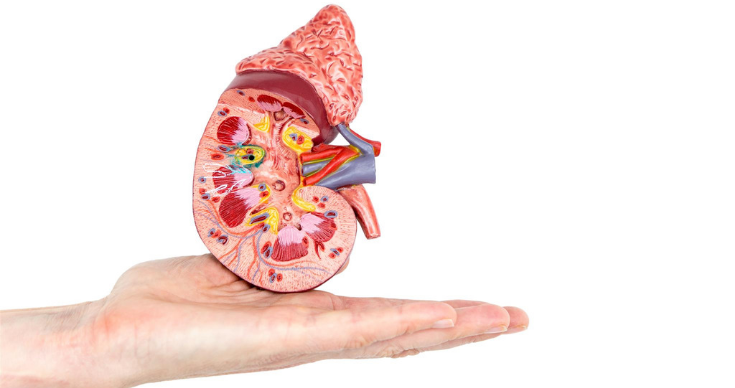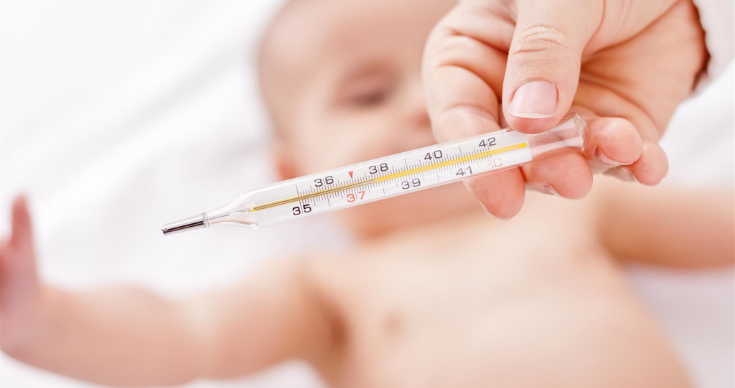Home Quarantine Taking A Toll On Your Mental Health? Learn Ways To Cope
People are told to be home-quarantined for various reasons. Sometimes it might be to avoid the transmission of an epidemic or pandemic or sometimes due to any surgery, illness or injury. Being home-quarantined for several days can take a massive toll on your mental health as well.
Your mental health is as important as your physical well-being. So, ILS Hospitals will tell you some ways through which you can protect your mental health during the distressing time.
Let’s learn about them now.
Practice your hobby:
We all have hobbies that we cannot do many times because of our hectic daily schedules. Now’s the perfect time to indulge yourself in activities that you love the most. Read, write, cook, sing, paint, sew, knit, dance, play or do whatever you cherish the most indoor because doing what you enjoy and it has amazing effects on your brain.
Take good care of yourself:
If you’re healthy from inside, it will show on outside. Eat a healthy diet, drink plenty of water and get a good night sleep to take good care of your body and mind.
Organize your home:
An empty mind is the devil’s workshop. Do household chores and organize your home and garden to keep yourself occupied.
Learn something new:
The internal structure of our brain changes when it learns something new. You can watch informative documentaries online or on TV and can even learn a new art or craft by taking online lessons at home.
Communicate with people:
Humans are social beings so not being able to socially interact with others can hamper your mental health. If for some reasons, you are prohibited to go outside, make use of digital communication to connect with your loved ones.
Spend time with your family:
We often forget to spend quality time with our own family. To improve your mental well-being, talk to your family members about your concerns and be a good listener when they are doing the same.
Spend time with your pets:
Your pets are like your family members. They too deserve your love and affection. Pets are going to be your real stress-busters. Play with your pets and let them know how much they mean to you.
For any medical treatment, visit ILS Hospitals in hospitals In Kolkata and hospitals in Agartala.
Peptic Ulcer: Types, Causes, Symptoms, Diagnosis And Treatment
A peptic ulcer is an inflammation that develops in the lining of the stomach, the lower part of the esophagus and upper portion of the small intestine. It is a gastroenterological condition and thus, treated by gastroenterologists. They are open lesions and mainly of three types based on their location as follows:
-
Gastric (stomach) ulcer: Ulcers that occur in the stomach.
-
Esophageal ulcer: Ulcers that happen in the esophagus.
-
Duodenal ulcer: Ulcers that develop in the upper portion of the small intestine.
It is important to know why peptic ulcer happens in the first place. The primary reason behind the occurrence is when the stomach acids responsible for digestion damages the lining of the stomach and sometimes even travel to the esophagus causing esophageal ulcer. The bacteria Helicobacter Pylori (H. Pylori) also contributes by inflaming the lining of the stomach. Surely, other causes are present as well which you’ll find below:
-
Smoking
-
Overuse of over-the-counter drugs
-
Infection from H. Pylori bacteria due to consuming contaminated food, water, using uncleaned utensils etc.
-
Overconsumption of alcohol.
Let’s now focus on the symptoms of a peptic ulcer.
-
Indigestion
-
Heartburn or acid reflux
-
Vomiting or regurgitation
-
Bloating and burping
-
Belching
-
Black stools
-
Nausea
-
Fatigue
-
Unintentional or unexpected weight loss
-
Loss of appetite
-
Pain in the abdomen and chest
-
Facing difficulties in breathing.
A diagnosis is always needed to confirm any medical condition. Apart from the mandatory physical examination in which the doctor check for bloating and pain, certain other crucial diagnostic tests can also be prescribed by the medical professional for an accurate diagnosis. They include:
-
Blood test – to determine the presence of H. Pylori bacteria.
-
H. Pylori stool antigen test – to look for H. Pylori infection.
-
Urea breath test or H. Pylori breath test – to conduct this test, the patient is asked to consume something with radioactive carbon (either in pill or liquid form) and then the breath samples are taken for lab testing procedure which accurately confirms the existence of the bacteria.
-
Gastroscopy – an endoscope is anaesthetically inserted inside the patient’s mouth to view the stomach, duodenum and esophagus for ulcers.
-
Endoscopy biopsy – the same as gastroscopy and in case of an ulcer detection, the samples are taken for clinical purposes.
The treatment options are as follows:
1. Antibiotics (to kill the bacteria, H. Pylori)
2. Antacids (to neutralize the stomach acid)
3. Cytoprotective drugs (to protect the mucous lining of the stomach)
4. Surgical treatment (if the above method fails and the ulcer recurs)
Get accurate diagnosis and treatment for peptic ulcer only from ILS Hospitals, one of the best hospitals in Kolkata and Agartala.
What Are Multispeciality Hospitals And How Are They More Beneficial Than General Hospital
Even though we all thrive to stay healthy, staying disease-free is always not so easy in reality. Often you need to go to the hospital and clinics to seek consultation from the doctors and get medical screening at the diagnostic centers or pathology labs. While you look for the best hospital, you are certain to come across 2 types of hospitals, general and multispeciality hospitals. Today, we will define what are multispeciality hospitals and how they are more beneficial than general hospitals.
General hospitals are a non-specialized healthcare provider that offers primary and general treatment for patients with all types of medical conditions. Multispecialty Hospital, on the other hand, addresses different branches of medicine under one roof and also offer surgical treatment and diagnostic services. ILS Hospitals is a well-known group of multispeciality hospitals that offers quality healthcare for people at an affordable price. It has 4 units, at Salt Lake, Dumdum, Howrah, and Agartala.
Here we list out some advantages that multispeciality hospitals offer.
1. Numerous medical specialties under one roof, which includes, but not limited to the following:
General Medicine, ENT, GI specialist, Dermatology, General Surgery, Opthalmology, Neuro medicine, Neurosurgeon, Cardiologist, Cardiothoracic surgeon, Pulmonology, Rheumatology, Orthopedic, Gynecology & Obstetrics, Nephrology, Pediatrics, Urology, Endocrinology, Plastic surgery, Dentistry and many more.
You can also find inter-specialties such as Neuro-Ophthalmology which is an interdisciplinary specialty between neurology and Opthalmology. It focuses on the diseases that originate due to some neurological reasons and affect the vision of the patient.
2. It offers high-end diagnostics which includes both general pathologies such as blood profile screening, x-ray scanning, USG, along with critical diagnosis such as cath lab, doppler test, etc.
3. It stays open all day, all around the year and also offers treatment for medical emergencies. It offers 24/ 7 emergency service, along with ambulance services, pharmacy, assistance with the blood bank, ICU, NICU, PICU, etc.
So, as you can clearly see, going to a multispeciality hospital is a much advantageous decision. In case you are not sure which doctor you should refer too, coming to a multispeciality hospital is your best option as they will help you get in touch with the most suitable doctor.
ILS Hospitals is a multispeciality hospital that offers extensive treatment. Come at ILS Hospitals to address a wide range of health conditions.
All You Need To Know About Stroke
A medical emergency can happen any day, any time, with or without any warning signs. The most common medical emergencies in Kolkata are a heart attack, stroke, cardiac arrest and road accidents. Often people assume heart attack and stroke to be the same thing, but they are not. Let’s understand some crucial aspects of stroke in brief.
What Is a Stroke?
Stroke is a medical emergency which occurs when blood flow to the brain stops and as a result, the brain cells begin to die. A heart attack is a similar medical emergency in which the supply of blood to the heart stops.
There are 3 kinds of stroke, namely
- Ischemic Stroke – When an artery is blocked
- Hemorrhagic Stroke – When a blood vessel is ruptured
- Mini Stroke (Transient Ischemic Attack) – When a blood vessel is damaged temporarily
Though a mini-stroke doesn’t have any long term effect on health for most people, some patients are left with some disability for life. A mini-stroke also uplifts the risks of having a stroke in the future, significantly.
What Are The Symptoms Of A Stroke?
As already mentioned, stroke is a medical emergency and during stroke every second count. Thus it is crucial to be able to identify stroke on time. But identifying stroke can be challenging for people in general. In this regard, we all should be aware of a simple acronym FAST. So, if you suspect anyone to have a stroke, check the following.
- Face Dropping – Ask them to smile to check the facial muscles. If you observe one side of the face to be dropping or if the smile appears to be uneven, it might indicate a stroke.
- Arm Weakness – Ask them to lift both arms and see if they can. Also, check if they complain of numbness in one arm.
- Speech Difficulty – Ask them to check how they respond and see if their speech seems slur or abnormal or if they are able to understand your command.
- Time To Call Ambulance – If any of the above-mentioned symptoms are present, don’t hesitate and call the ambulance immediately.
Apart from these obvious symptoms of a stroke, there are few other minor symptoms as well. These include-
- Severe, sudden headaches
- Blurry vision or difficulty focusing on one/both eyes
- Paralysis/numbness/weakness in body part/s
- Trouble walking or loss of balance
- Dizziness or confusion
- Loss of memory
- Muscle stiffness
- Involuntary eye movement
So, always remember, ‘if you suspect a stroke, then be FAST’. If you are not entirely sure, get it addressed at the nearby healthcare provider. Treatment on the right time will reduce the risk of disability or even death.
The symptoms of stroke may vary depending upon severity. On one hand mild stroke might have a temporary weakness; on the other hand, any sever stroke can end up causing permanent paralysis.
ILS Hospitals is all set to offer accurate diagnostics and prompt treatment for stroke and other medical emergencies. Our expert doctor and paramedic team monitor the patient round the clock, on our ICUs. For more information, visit us.
The Latest Laparoscopic Surgery Is A Better Option Than Open Surgery In Many Cases
We live in an era of medical science when it is constantly improvising to enhance our lives. On one hand traditional, open surgery has been a very useful treatment approach to treat a range of illness for centuries, however, laparoscopic surgery is substituting many open surgery procedures at a fast pace. Today, we will discuss laparoscopic surgery and list out why it is a more beneficial option these days.
Laparoscopic surgery is also known as minimally invasive surgery, or keyhole surgery or band-aid surgery. It is carried out by making a few minute holes on the abdominal area rather than making a large slit like it is done in open surgery. The procedure starts by inflating the stomach using some carbon dioxide gas. This offers two advantages- it helps the surgeons have visuals and working space to carry out the operation. The surgeons insert several instruments through these holes, including a laparoscope, camera, light, and other equipment.
The camera captures the visuals from inside the body and projects it on the screen. The doctor uses this visual to guide the instruments inside the body and performs the surgery. After it is done, the instruments are retracted back and the abdominal cavity is deflated by extracting the gas out. The minute incisions are stitched back and thereby completes the surgery procedure.
There are many advantages associated with laparoscopic surgery.
- It mitigates the need for a prolonged hospital stay as it often involves fewer complications. The patients are generally allowed to return to their home within 2-3 days of the surgery.
- It reduces surgery risks such as bleeding, infection, nearby organ perforation, etc due to the much smaller incisions.
- As it involves no large stitches, usually the chances of forming hernia in the future are less (which is otherwise is a high-risk factor associated with open surgery).
- It is aesthetically better. Laparoscopic Surgery leaves only 2-3 minute incision marks, which looks a lot better than having large stitch marks.
- The minute incisions ensure minimal bleeding and hence, blood transfusion is often not required during these surgical procedures. For the same reason, it is also known as a bloodless procedure.
- This surgery technique does not lead to the organ’s exposure during the procedure. As a result, it mitigates the risk of infection during and after surgery.
- Due to all these above-mentioned factors, laparoscopic surgery offers much faster recovery. It enables the patient to resume their daily life within a few weeks time period. This results in much lesser absence from work and personal life.
At ILS Hospitals, we offer a wide range of medical surgery through the laparoscopic technique. Our eminent surgeon offers minimally invasive surgery for various medical specializations. We are all thrived to ensure that the patients gain the maximum benefit out of the procedure.
4 Health Issues Faced By Working People
Success is no accident. It is hard work, perseverance, learning, studying, sacrifice and most of all, love of what you are doing or learning to do. – Pele
Indeed work is an inseparable part of our lives. Not only it pays the bills, but also keeps us engaged in everyday life, enhance our skills and knowledge and help us bond with people around us. However, there are few downfalls of the same as well, as these are often associated with occupational hazards. Many such cases get registered each year at various orthopedic clinic in Kolkata.
Today, let’s list out some of the health complications that are closely associated with working people. Many individuals are involved in work that requires spending most or all of the time on the desk. Most common problems associated with the same are as follows-
1. Back Problems

This is certainly the most common condition faced by people chained to the desk. Long hours of sitting, especially without taking adequate breaks to lead to several problems related to the spine, neck, and back. This becomes even worse as most of the people actually sit on chairs that are either poorly designed for back support or have worn out features due to prolonged usage.
Taking frequent breaks from work, doing light stretching and yoga can help deal with it.
2. Eye Strain

We live in the era of the digital world, so most of our work is being carried out with the help of the computer. Prolonged work on it can lead to straining of eyes along with risks of developing many other vision problems, in a long run, such as dry eyes, hazy visions, change in power, redness in the eye and many others. Taking regular breaks from the screen is quite important along with staying hydrated to deal with such vision problems. If problems persist, it is wise to seek treatment without any delay.
3. Stress

Stress is a major health threat for people working for long. This happens due to long duty hours, work-related pressure, conflicts at the workplace and at home. It is very crucial to be able to manage stress because if it is left untreated, it can bring many other complications both medically and emotionally. In fact, having anxiety and depression is almost inevitable if you are dealing with stress persistently. As per physiatrists, having a support group, indulging into hobbies and yoga can help immensely.
4. Overweight/ Obesity

Most office workers are chained to their desks for a significant part of the day. Even during non-working hours, people do not stay very motivated to make efforts to stay fit. Moreover, consuming highly processed food while working is something quite common among such people. As a result, it is very common to find them gaining weight more than ideal for them. Staying physically active will help them stay away from excessive weight gain.
How many of them are you dealing with? Come at ILS Hospitals and get yourself evaluated for the same. Early treatment will help you lead a healthier life ahead.
A Brief Introduction To Advanced Renal Transplant
Our body has been designed to perform every crucial function quite effectively. Yet, it is quite normal to rely on medical treatment when our body becomes weak due to some disease or accidental injury. However, only medication cannot always fix every condition on its own. Kidney failure is one such condition that many times require extensive medical attention namely the renal transplant. Let’s understand more about renal failure and advanced renal transplant, as explained by our nephrologists.
Kidneys are a pair of a bean-shaped organ that filters the blood and flushes out the toxins in the form of urine. The kidneys are comprised of tiny filtration units which work so efficiently that even one healthy kidney can perform the overall function. Thus, it becomes quite tricky to detect a renal failure in its early stages. Nephrologists term Renal failure as the condition in which the kidneys lose more than 90% of their ability to function anymore. Renal failure can either happen due to chronic kidney disease or acute kidney diseases. Additionally, factors like chronic high blood pressure, diabetes can also uplift the chances of kidney diseases significantly.
Either way, it requires either regular dialysis or a renal transplant to make long term survival. Kidney transplant is a more preferable solution in comparison to a lifetime of dialysis ahead. Renal transplant is a surgical procedure to transfer a healthy kidney from a donor to a patient whose kidneys no longer performs. This functioning kidney can either be collected from a dead person (cadaveric donor) or from a living healthy donor. Usually, one healthy kidney is adequate to replace 2 failed kidneys. But it is not as simple as it may sound.
Renal transplant is an advanced treatment procedure that requires many prerequisites for it to become successful. Just like blood transfusion, there should be adequate compatibility between the donor and the recipient for renal transplant to work. Moreover, getting a donor often is time-consuming (between a few months to a few years) in case a compatible donor cannot be found on time. In such a scenario, the recipient will have to register their name on a kidney transplanting list, which determines several factors before one can get their scope of renal transplant.
This modern medical marvel has its downside as well. Mild infection, blood clot, and bleeding might arise after renal transplant, but, these can be treated well with mild medication. The main concern related to a renal transplant is organ rejection, in which the body of the recipient rejects the organ. But in some cases, this possibility can be minimized with the help of taking immunosuppressants. So, it is very crucial to carry out this surgery in an advanced hospital under expert nephrologists.
Renal transplant is an advanced medical procedure to ensure the patient with renal failure can lead a healthy life ahead. Through some risks are associated with it, the increasing numbers of success stories are inspiring people to consider this treatment for themselves or their loved ones. For more information regarding kidney diseases, renal failure, and renal transplant, consult with the highly experienced nephrologists at ILS Hospitals.
6 Most Common Health Issues Of Children By Expert Pediatricians
Falling sick is difficult and frustrating for every individual. However, when your kids fall sick, it is even more challenging. You might be able to ensure that your kid stays healthy by maintaining a healthy diet and lifestyle for your kids along with a regular visit to a general physician. However, in the case of several conditions, you need a proper consultation with an expert pediatrician. Today, we bring you some most common heath issues that are prevalent among young children, as explained by expert pediatricians.
1. Common Cold
The common cold is quite common among young children. But thankfully, most common colds can be effectively cured with adequate fluid intake, rest and home remedies, though sometimes it might require mild, over-the-counter medicine. But in case it is causing too many absenteeism or looks like something severe, it is wise to get it checked from a doctor soon.
2. Allergies
Having allergies is very common among young children. Let it be from any particular food or dust mite, smoke or pollen, it is important to get it evaluated. Though many children can successfully get rid of certain allergies as they grow up and their immune system develops, it is crucial to make them aware of their allergies and remedies, in case it is ever required.
3. Conjunctivitis
This infection affects the eyelid and also the eyeball sometimes. This can cause either due to a pathogen like a virus and bacteria or some allergies. This leads to red, puffy eyes that discharge liquid and often happens to be contagious in nature. It is crucial to take proper measure to ensure it does not affect other children either.
4. Warts
It is yet another common issue among young children. Warts are small, lumpy appearances on the skin that can spread to other areas as well. Though it is painless, it is crucial that the children do not prick or scratch them. It usually can be treated easily with mild medication, but in case they have a red and painful appearance or happens on the feet, the face or the genitals, it requires immediate medical attention.
5. Worms
Having worms is very common among young children. It projects annoying symptoms like itchy bottom. It can be effectively treated with anti-parasitic tablets, and it is crucial to have these medicines for everyone in the family simultaneously. It is also important to use soap and wash the bed linings and clothes thoroughly.
6. Gastroenteritis
Having diarrhea, vomiting, fever, and cramps are quite normal in children, along with loss of appetite and nausea. It is a pathogenic infection that can be treated easily by over the counter drugs, plenty of rest and fluid intake. But it spreads very quickly, so it is important to take measure to contain and eliminate it completely.
Even though growing up with mild illnesses is a part of childhood and there is no way to eliminate every condition, no matter how careful you are, it is important to be able to treat them on time. The expert pediatricians of the ILS Hospitals offer treatment for a wide range of illnesses among children.
Suffering From Persistent Headache? Learn What Might Be Causing The Same
Human beings are surrounded by diseases in every stage of life. Having headaches is one of the most common conditions that affect almost every individual from time to time. Though you might be able to relieve stress headache with a good sleep or herbal tea, dealing with persistent headache is quite challenging. Persistent headaches can be a sign that the body is going through persistent fatigue. However, it may also be a sign of a severe condition like a brain tumor that can be addressed by proper treatment. Today, we will discuss some possible reasons for persistent headaches.
1. Infection In The Brain
There are few parasitic that can cause brain infections such as Meningitis that affects the brain’s function and can project many symptoms. Headaches are simply one of them.
2. Brain Tumour
A brain tumor is a serious condition that requires immediate medical attention from the best hospital. Frequent episodes of headaches accompanied by loss of memory should be addressed immediately.
3. Nerve Condition Around The Brain
Inflammation of blood vessels around the brain is yet another reason for recurring episodes of headaches. Some of them might be accompanied by a sensation of formication (sensation of small insects crawling on the head, due to nervous movements).
4. Intense Cranial Pressure
Using any headband or hairband or another accessory that exerts intense pressure for a persistent period of time can also lead to headaches during or even after using them.
5. Brain Injury
Any recent or previous injury (or trauma) can cause a headache. This should be diagnosed further to rule out the possibility of having any underlying damage from the past.
6. Everyday Stress
People for whom stress is a part and parcel for everyday life, often come across persistent stress-induced headaches and other medical problems as well.
7. Lack Of Adequate Rest
Not getting adequate rest can have several adverse effects on one’s health. This often leads to headaches as well.
8. Alcohol Hangover
Overconsumption of alcohol often leads towards hangover, that comes with mild to severe headache. People who drink routinely feels these headaches routinely as well.
9. Change Of Vision Power
As per many eye specialists, any change in eye power can also cause headaches.
10. Brain Freeze
Consuming chilled liquids too quickly can lead to a brief, headache. This s practically a signal from the brain indicating to have such beverages quite slowly.
11. Occupational Hazards
Exposure to a certain harmful environment such as CO poisoning can lead to continuous episodes of headache.
12. Dehydration
Severe dehydration affects the body in more than one way. Headaches are very common among people who are suffering from dehydration.
13. Certain Habits
Some persistent movements related to maxillofacial muscle such as the habit of teeth grinding can also lead to a headache.
A certain change in lifestyle and taking precaution can certainly help relieve these headaches, such as-
- Avoiding medication overuse.
- Eating healthy, at the right time
- Getting enough sleep.
- Cutting down caffeine and alcohol
- Staying active
- Managing stress
Persistent headaches should be always taken seriously. In case you too suffer from the same, get it evaluated by a doctor at the earliest convenience.
Knee Problems That Require Replacement Surgeries
Long walks during some trip or an exceptionally busy day are certain to cause some discomfort in the skeletal system. Its maximum impact can be seen on the lower extremities, namely the knee and heel joints. This kind of pain and discomfort becomes inevitable during old age and in case of accident or illness that has affected the Musco-skeletal system. In fact, the number of patients seeking ortho and joint replacement surgeries these days are alarmingly high. However, there are several individuals who are dealing with such difficulties every day without being aware of the fact that most of the times it can be resolved using advance ortho replacement surgery.
Today, we are listing some knee problem that might require ortho replacement surgery, which can help improve such discomforts.
1. Knee Osteoarthritis
This illness is characterized by decaying of bone density alarmingly. As a result, it starts to make the bone structure much fragile and leads to pain and discomfort. It affects everyday activities like climbing stairs, bending, walking and sometimes even sitting and getting up. For such patients, knee replacement is a good treatment option, but along with the surgery, the patients need to modify their diet and lifestyle a little as well. This aims to strengthen the bones and mitigate the risks of bone fracture in the future.
2. Knee Effusion
Synovial fluid is a natural, thick lubricant present in the cavities of the joint. It eases movement in that region, nourishes the cartilage along with protecting and supporting the knee joints. When this fluid fails to perform its function, it leads to knee inflammation, pain, and other discomforts. It might require extensive treatment to ensure complete care for the same including surgery.
3. Accidental Trauma To Knee
Any accident, let it be a small fracture or major clash, can affect the skeletal system. It is crucial to seek treatment if any persistent discomfort is noted. In case the accidental trauma is causing some major issue, particularly in the knee joint, the doctor might advise knee replacement surely, but only after confirming the same using imaging diagnostic screenings. It is crucial to seek treatment on time, as untreated discomfort can cause some long term damage as well.
4. Bowing In Or Out
Any Musco-skeletal disease such as bowing in or out might require knee replacement surgery as well. Whether it is a birth defect or has occurred over time, it is crucial to stop suffering and evaluate your treatment options to correct it permanently.
5. Knee Inflammation
Knee inflammation is characterized by stiffness of the knee joint due to inflammation in the region. It causes pain, immobility, and discomfort. It can be resolved with mild mediation, if the inflammation is on the skin, typically over the joint. But it is due to something that is happening internally, often the knee replacement surgery might be considered.
Knee joint pain can simply on set over the course of older age. Knee replacement surgery can be advised when the knee pain seems to be an issue due to many other causes as well. This is particularly true if the knee pain does not resolve with medication and starts interfering with everyday work and activities. It is crucial to try to find out the exact cause and treatment of the knee pain.
In case, you are dealing with any of this, it’s time to consider getting an ortho and joint replacement surgery. Remember, the sooner you get it treated, the better the result it has.












